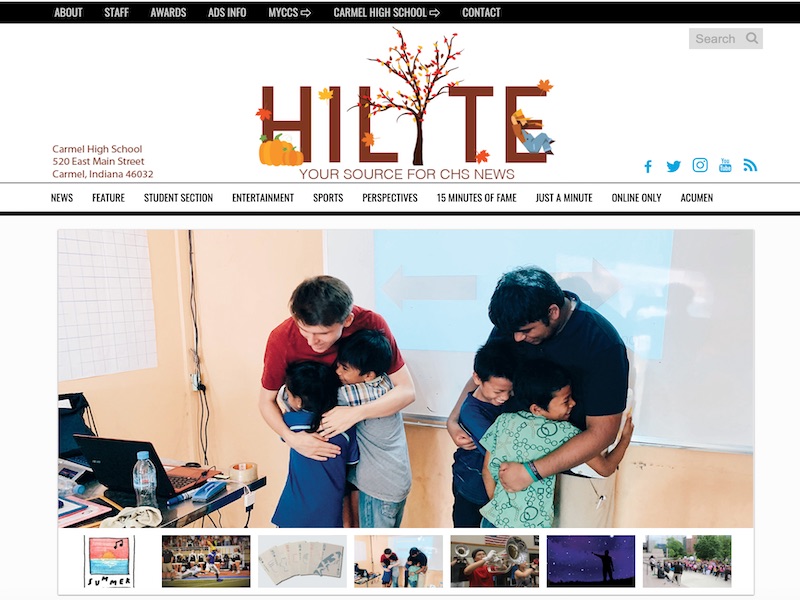News Websites Fundamentals Explained
News Websites Fundamentals Explained
Blog Article
News Websites for Dummies
Table of Contents10 Easy Facts About News Websites DescribedNot known Factual Statements About News Websites Some Known Details About News Websites Some Ideas on News Websites You Should KnowWhat Does News Websites Do?
It was down in the UK and Brazil yet up some other nations, such as Greece, Bulgaria, and Poland (News Websites). This year, for the first time, we inquired about the different ways that people prevent the information and located that around half of avoiders (53%) were trying to do so in a broad-brush or periodic method for instance, by switching off the radio when the news came on, or by scrolling past the news in social mediaYou said that you attempt to proactively stay clear of news.

I'm possibly selecting to check out even more light-hearted stories than I made use of to right now. M, 51, UK Switching my back on information is the only way I feel I can cope occasionally. I need to purposely make the initiative to avert for my very own psychological health.
The 8-Second Trick For News Websites
Careful avoidance of Ukraine news was highest in a number of the countries closest to the problem, strengthening findings from our added survey last year, not long after the battle had begun. Our information might not recommend an absence of passion in Ukraine from close-by nations however instead a wish to manage time or secure mental wellness from the extremely actual horrors of battle.
Comparing Finland with a politically polarised country such as the USA (see following chart) that is less influenced by the war, we discover a really different pattern of subject evasion. In the United States, we locate that consumers are more most likely to stay clear of subjects such as nationwide politics and social justice, where debates over problems such as sex, sexuality, and race have ended up being very politicised.
American politics are rather poisonous these days. I discover occasionally that I have to separate from tales that simply make me upset. F, 61, United States For some individuals, bitter and divisive political debates are a factor to shut off news entirely, but also for some political partisans, avoidance is usually regarding shutting out point of views you don't intend to listen to.

The Greatest Guide To News Websites
Some are aiming to make news more available for hard-to-reach groups, widening the news schedule, commissioning even more inspiring or favorable news, or embracing positive or services journalism that give individuals a sense of hope or individual agency. In our survey this year, check this site out we asked participants regarding their passion in these different strategies.
This discusses why stories like Ukraine or nationwide politics perform well with information regulars yet can at the same time turn much less interested users away (News Websites). Careful avoiders are much less interested in all sorts of news than non-avoiders however in loved one terms they do seem to be much more thinking about favorable or solutions-based information

News Websites for Dummies
2023). This might be true in the moment, however with time it appears to be leaving lots of people vacant and much less completely satisfied, which might be threatening our link with and count on the information. Throughout markets, total trust in information (40%) and rely on the sources people utilize themselves (46%) are down by a better 2 percentage factors this year.
Indeed, through the rear-view mirror, the COVID-19 trust bump is plainly visible in the following chart, though the instructions of traveling later on has been blended. In many cases (e.g. Finland), the trust rise has been preserved, while in others the upturn looks more like a spot in a story of ongoing long-lasting decline.
Some of the highest possible reported levels of media objection are found in nations with greatest degrees of suspect, such as Greece, the Philippines, the USA, France, and the United Kingdom. The most affordable levels of media criticism frequent those with greater degrees of count on, such as Finland, Norway, Denmark, and Japan.
Excitement About News Websites
This year we asked respondents about their choices for text, audio and video clip when taking in news online. Generally, we locate that the bulk still like to read the information (57%), instead of watch (30%) or listen to it (13%), however younger individuals (under-35s) are try this most likely to pay attention (17%) than older groups.
Behind the standards we find considerable and unexpected country differences. In markets with a strong analysis custom, such as Finland and the United Kingdom, around eight in ten still prefer read here to check out online news, but in India and Thailand, around four in 10 (40%) say they favor to view news online, and in the Philippines that percentage mores than fifty percent (52%).
Report this page